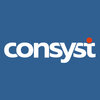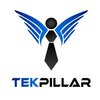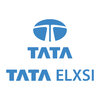Embedded Engineer
100+ Embedded Engineer Interview Questions and Answers

Asked in CONSYST

Q. Two baskets, A and B, contain an unknown number of mangoes. If one mango is transferred from basket A to basket B, the number of mangoes in both baskets becomes equal. Conversely, if one mango is transferred fr...
read moreTwo baskets of mangoes have a unique relationship based on transferring mangoes between them.
Let A be the number of mangoes in basket A and B in basket B.
If 1 mango is moved from A to B, then A - 1 = B + 1.
If 1 mango is moved from B to A, then A + 1 = 2(B - 1).
From the first equation, we can express A in terms of B: A = B + 2.
Substituting A in the second equation allows us to solve for B.
After solving, we find A = 4 and B = 2.
Asked in Regami Solutions

Q. What is the difference between sensors and actuators?
Sensors detect and measure physical properties, while actuators are devices that cause physical movement or action.
Sensors collect data from the environment, while actuators act upon the environment based on that data
Examples of sensors include temperature sensors, motion sensors, and pressure sensors
Examples of actuators include motors, solenoids, and valves
Embedded Engineer Interview Questions and Answers for Freshers

Asked in Bosch Global Software Technologies

Q. Why are you interested in the field of embedded software development?
I am fascinated by the challenge of working with low-level hardware and creating efficient, real-time systems.
Enjoy the challenge of working with low-level hardware
Excited about creating efficient, real-time systems
Passionate about developing innovative solutions for embedded systems
Asked in MAXVY Technologies

Q. How can I assign a specific address to structure variables in C, for example, assigning the address 800 to int v1 and the address 700 to int v2?
Assigning specific memory addresses to structure variables in C can be done using pointers and typecasting.
Use Pointers: Declare pointers to the desired types and assign them the specific addresses. Example: int *v1 = (int *)800;
Structure Definition: Define a structure and use pointers to assign specific addresses to its members. Example: struct MyStruct { int *v1; int *v2; };
Memory Management: Ensure that the addresses you assign are valid and accessible to avoid undefined b...read more

Asked in Saffron Tech

Q. How many algorithms did you become familiar with while learning C programming?
I learned several algorithms while learning C programming.
I learned sorting algorithms like bubble sort, insertion sort, and selection sort.
I also learned searching algorithms like linear search and binary search.
I learned recursive algorithms like factorial and Fibonacci series.
I learned data structure algorithms like linked list, stack, and queue.
I also learned algorithms for string manipulation and file handling.
Overall, I learned a variety of algorithms that helped me bec...read more
Asked in MAXVY Technologies

Q. What are the features of CAN, UART, SPI, and I2C communication protocols?
CAN, UART, SPI, and I2C are essential communication protocols used in embedded systems for data exchange between devices.
CAN (Controller Area Network): A robust vehicle bus standard designed for real-time applications, commonly used in automotive systems for communication between microcontrollers.
UART (Universal Asynchronous Receiver-Transmitter): A simple serial communication protocol that transmits data one bit at a time, often used for short-distance communication, like co...read more
Embedded Engineer Jobs




Asked in LTIMindtree

Q. How does a packet travel from source to destination?
Packets are sent from source to destination through a series of network devices using routing protocols.
Packet is created at the source with source and destination IP addresses.
Packet is sent to the default gateway or router.
Router checks its routing table to determine the next hop for the packet.
Packet is forwarded to the next hop until it reaches the destination.
Destination receives the packet and sends an acknowledgement back to the source.
Asked in Adisoft Technologies

Q. What is your understanding of Battery Management Systems and lithium-ion batteries?
Battery Management Systems (BMS) ensure safe operation and longevity of lithium-ion batteries by monitoring and controlling their performance.
BMS monitors voltage, current, and temperature of each cell in a lithium-ion battery pack.
It balances the charge across cells to prevent overcharging or deep discharging, enhancing battery life.
BMS provides safety features like over-voltage, under-voltage, and short-circuit protection.
Examples include electric vehicles (EVs) where BMS o...read more
Share interview questions and help millions of jobseekers 🌟


Asked in GE Healthcare

Q. What are the Protocols in Industry. Like SPI,I2c, CAN
Common industry protocols include SPI, I2C, and CAN for communication between devices.
SPI (Serial Peripheral Interface) is a synchronous serial communication protocol commonly used for communication between microcontrollers and peripheral devices.
I2C (Inter-Integrated Circuit) is a multi-master, multi-slave serial communication protocol used for connecting low-speed peripherals to a motherboard or embedded system.
CAN (Controller Area Network) is a robust serial communication ...read more

Asked in Capgemini Engineering

Q. Write code to allocate memory for a multi-dimensional array on the heap.
Code to allocate memory for multidimensional array on heap
Use malloc() function to allocate memory on heap
Calculate the total size of the array using the dimensions
Use a pointer to access the array elements
Asked in MAXVY Technologies

Q. What is the purpose of the SCL line in the I2C protocol?
The SCL line in the I2C protocol is the clock line that synchronizes data transmission between devices on the bus.
Clock Signal: SCL provides the clock signal that coordinates the timing of data transfers between the master and slave devices.
Synchronization: It ensures that both the sender and receiver are synchronized, allowing for accurate data interpretation.
Master Control: The master device controls the SCL line, determining the speed of communication by toggling the clock...read more

Asked in Bosch Global Software Technologies

Q. What is the principle of an analog-to-digital converter?
An analog to digital converter converts continuous analog signals into discrete digital values.
Converts continuous analog signals into digital values
Utilizes sampling and quantization techniques
Common types include successive approximation ADC and delta-sigma ADC

Asked in Bosch Global Software Technologies

Q. Why does CAN bus use 120-ohm resistance?
120 ohm resistance is used in CAN bus to match the characteristic impedance of the transmission line.
CAN bus is a differential signaling system that requires a balanced impedance to prevent signal reflections.
The 120 ohm resistance matches the characteristic impedance of the transmission line, which is typically 120 ohms.
Without the proper impedance matching, signal reflections can cause data errors and reduce the maximum communication distance.
The 120 ohm resistance is typic...read more
Asked in Biovantage Technology Solutions

Q. How many years of experience do you have in development using Embedded C?
I have over 5 years of experience in Embedded C development, focusing on various applications and systems.
Developed firmware for microcontrollers in automotive applications, enhancing performance and reliability.
Worked on real-time operating systems (RTOS) for embedded devices, ensuring timely task execution.
Implemented communication protocols like SPI and I2C for sensor integration in IoT devices.
Optimized memory usage in resource-constrained environments, achieving signific...read more

Asked in L&T Technology Services

Q. Explain I2c diff btn i2c and spi diff btn hw and sw interrupt
I2C is a serial communication protocol used to connect multiple devices with two wires. SPI is another serial protocol with four wires.
I2C uses a master-slave architecture while SPI uses a master-master architecture.
I2C supports multiple devices on the same bus while SPI requires a separate chip select line for each device.
Hardware interrupts are triggered by external events while software interrupts are triggered by software instructions.

Asked in Bosch

Q. Describe how you would handle a critical situation.
In critical situations, I prioritize communication, problem-solving, and teamwork to ensure effective resolution.
Stay calm and assess the situation quickly.
Communicate clearly with team members to gather information.
Identify the root cause of the issue and brainstorm solutions.
Delegate tasks based on team strengths to expedite resolution.
Example: During a project, a critical bug was found before a deadline. I organized a quick meeting to address it, and we resolved it in time...read more
Asked in Pumo Technovation India

Q. What is the formula for frequency, and how do you calculate frequency in 8051 microcontrollers?
Frequency in 8051 is calculated using the formula: Freq = 1 / (2 * T * 12 * (65536 - TH0 + TL0))
Frequency can be calculated by using the formula: Freq = 1 / (2 * T * 12 * (65536 - TH0 + TL0))
T is the crystal oscillator period in seconds
TH0 and TL0 are the values stored in Timer 0 registers
Example: If T = 1/12 MHz, TH0 = 0x00, TL0 = 0xFF, then Freq = 1 / (2 * (1/12e6) * 12 * (65536 - 0x00FF))

Asked in Qualcomm

Q. How would you describe your understanding of fundamental concepts?
I have a solid understanding of embedded systems, including microcontrollers, programming, and hardware interfacing.
Microcontrollers: Familiar with popular microcontrollers like Arduino and STM32.
Programming: Proficient in C and C++ for embedded programming.
Hardware Interfacing: Experience with sensors and actuators, such as temperature sensors and motors.
Real-time Operating Systems: Knowledge of RTOS concepts and usage in embedded applications.
Debugging: Skilled in using too...read more

Asked in Aptiv

Q. What are the criteria for a C program?
Criteria for C program include syntax correctness, logical flow, and efficient memory usage.
Correct syntax and logical flow are essential for program functionality
Efficient memory usage is important for performance optimization
Program should be well-documented and easy to maintain
Code should be modular and reusable for future projects

Asked in Bosch Global Software Technologies

Q. How does keyboard mapping work in a microcontroller?
Keyboard mapping in a microcontroller involves assigning specific key codes to each key on the keyboard.
Keyboard mapping is typically done using a lookup table that maps physical key presses to corresponding key codes.
The microcontroller reads the key code when a key is pressed and sends it to the computer for processing.
Keyboards may use different mapping standards such as ASCII or HID.
Custom keyboard mappings can also be implemented for specific applications or languages.

Asked in Optiemus Infracom

Q. Have you implemented hardware or performed simulations using software?
I have experience in both hardware implementation and software simulation for embedded systems.
Implemented a microcontroller-based system for temperature monitoring using Arduino.
Simulated a digital filter design using MATLAB to optimize performance before hardware deployment.
Worked on an FPGA project where I used ModelSim for functional simulation of the design.
Developed a PCB for a medical device, ensuring compliance with safety standards.

Asked in L&T Technology Services

Q. what is microcontroller? have you worked on any microcontroller? c++ basics polymorphism
A microcontroller is a small computer on a single integrated circuit that contains a processor core, memory, and programmable input/output peripherals.
Microcontrollers are commonly used in embedded systems for controlling various devices and appliances.
They are programmed using languages like C or assembly language.
Examples of popular microcontrollers include Arduino, Raspberry Pi, and PIC.
Microcontrollers are often used in applications such as robotics, home automation, and ...read more

Asked in Polaris Smart Metering

Q. Write code to explain the 8-bit and 4-bit modes of a Character LCD (CLCD).
Code for interfacing 8-bit and 4-bit CLCD with an embedded system.
For 8-bit CLCD, use all 8 data lines (D0-D7) to send data to the display.
For 4-bit CLCD, use only 4 data lines (D4-D7) to send data in two 4-bit nibbles.
Ensure proper initialization and configuration of the CLCD controller in the code.
Example: For 8-bit CLCD - send data using PORTA in AVR microcontroller. For 4-bit CLCD - send data using lower nibble of PORTB.

Asked in KPIT Technologies

Q. What is yocto? Why it is used and the features
Yocto is a Linux distribution builder tool that helps in creating custom embedded Linux systems.
Yocto is used to streamline the process of building custom Linux distributions for embedded systems.
It provides tools and templates to create custom configurations, packages, and images.
Yocto allows for easy customization and optimization of the Linux system for specific hardware requirements.
It supports cross-compilation, package management, and dependency resolution.
Yocto is wide...read more

Asked in Vadict

Q. pointers work, how program execute for stm32,types of GPIO
Pointers are used to access memory addresses in STM32 for GPIO operations.
Pointers are used to access memory-mapped GPIO registers in STM32.
GPIO pins can be configured as input or output using pointers.
Example: GPIOA->MODER |= (1 << (2*2)); // Set pin PA2 as output

Asked in Addverb Technologies

Q. What is your understanding of the term Engineering?
Engineering is the application of scientific principles to design and build systems, structures, and processes for practical purposes.
Involves problem-solving using mathematics and science.
Examples include civil engineering (bridges), mechanical engineering (machines), and electrical engineering (circuits).
Focuses on innovation and efficiency in design and production.
Requires understanding of materials, forces, and technology.
Often involves teamwork and collaboration across v...read more

Asked in CONSYST

Q. What is the size of an integer in C programming?
The size of an integer in C depends on the system architecture, typically 2 or 4 bytes on most platforms.
1. Standard sizes: Commonly, int is 4 bytes on 32-bit and 64-bit systems.
2. Use sizeof: You can determine the size using 'sizeof(int)' in your code.
3. Variability: The C standard allows int to be at least 16 bits, but it can vary by compiler and architecture.
4. Example: On a typical 32-bit system, 'sizeof(int)' returns 4, while on some embedded systems it might return 2.

Asked in L&T Technology Services

Q. How does a computer boot up?
A computer boots up by executing the BIOS, loading the operating system into memory, and initializing hardware components.
BIOS (Basic Input/Output System) is the first code executed by a computer when powered on.
BIOS performs a Power-On Self Test (POST) to check hardware components.
BIOS then locates and loads the operating system from the boot device (e.g. hard drive, SSD, USB).
The operating system is loaded into memory (RAM) and begins executing, initializing hardware compon...read more

Asked in Addverb Technologies

Q. What is the difference between education and drama?
Education imparts knowledge and skills, while drama expresses emotions and stories through performance.
Education focuses on structured learning, such as attending classes or training programs.
Drama involves performance arts, like acting in plays or films to convey narratives.
In education, the goal is to acquire knowledge; in drama, the goal is to entertain or provoke thought.
Examples of education include university degrees, vocational training, and online courses.
Examples of ...read more

Asked in Optiemus Infracom

Q. Are you able to work with processors and PCBs?
Yes, I have extensive experience working with processors and PCBs in various embedded systems projects.
Proficient in programming microcontrollers like ARM Cortex-M and AVR.
Experience with PCB design software such as Altium Designer and Eagle.
Worked on projects involving sensor integration and data acquisition.
Familiar with debugging tools like oscilloscopes and logic analyzers.
Implemented power management solutions in battery-operated devices.
Interview Questions of Similar Designations
Interview Experiences of Popular Companies





Top Interview Questions for Embedded Engineer Related Skills



Reviews
Interviews
Salaries
Users

















